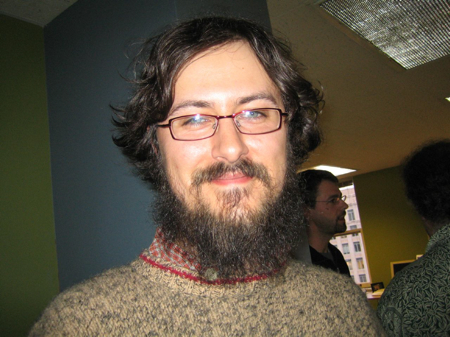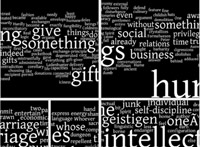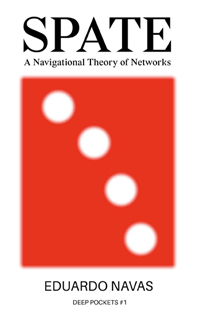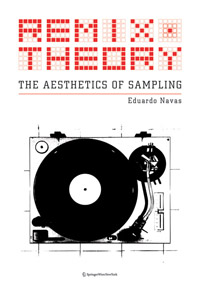Web 2.0: What Is A Mash Up? Marshall Kirkpatrick Video Interview, by Robin Good

Photo credit: (cc) Beth Kanter
Image and text source: Robin Good
Originally published on October 17, 2006
Web 2.0 has unleashed an era of online participation, personalization and interoperability set to change the way we network, do business and interact with the media that engulf us.
One of the most exciting developments in recent times is that of the Mash Up. The term Mash-Up can seem initially confusing, especially as it has more than one meaning. As Wikipedia points out a Mash Up can refer to:
- A Musical Mash Up that works on the basis of cutting often mismatched samples together to create new and interesting hybrids in dgital music. One of most famous musical Mash Ups of recent times is the now banned DJ Danger Mouse album ‘The Grey Album’ – created from the fusion of The Beatles White Album and Jay-Z’s Black Album.
- A Video Mash Up in which video and audio from different sources is cut together into a new Mashed Up union. One of the best video Mash Ups of recent times has to be the Bush/Blair Gay Bar video.
- A Mash-Up “Web Application hybrid“, which seamlessly combines tools or data from one or more online sources into a new, integrated whole. Examples of this latter type of Mash Up, the focus of our Marshall Kirkpatrick interview, can be found in abundance at Programmable Web.
Full Text Transcript of Marshall Kirkpatrick Interview on: “Web 2.0 Mashups”
Marshall Kirkpatrick: This is Marshall Kirkpatrick, I write for TechCrunch.com, where we review brand new web applications every day. Mash ups and a whole lot more. Come and check it out when you come and check out Robin Good’s MasterNewMedia.
“What Should I Picture In My Head When I Think Of A Mash Up?”
Robin Good: Hello Marshall! How are you doing today?
Marshall Kirkpatrick: I’m doing quite well. I couldn’t be happier to speak with you.
RG: I wanted to touch base with you about Web 2.0 and how it relates to these things called Mash Ups. Now imagine you have an audience in front of you, of business people coming from new media, but also very much from traditional media.
So probably for many of the people watching this, it would be great if you could give us your own take on what should I picture in my head when I think of a Mash Up?
Marshall Kirkpatrick: Well I think that Mash Ups are one part of a larger trend in Web 2.0 around portability of data. There’re many different technologies and uses of those technologies now that emphasize the ability to take data from one source and use it in another program, or another website or another context and mash ups are some of the most visible examples of those, of data being taken from one source and being used elsewhere, in another program, in another application, on another website, most commonly for purposes of visualization, but not exclusively.
People know most commonly about maps mash ups, where databases are visualized with a mapping program, or data from one place is mashed up with a map application. But really I think that in any situation where data from one source or one application or program is combined with another could constitute a mash up.
Oftentimes they’re thought of as highly technical, and there certainly are a lot of technical questions that are being debated right now in the mash up world, around how to best expose your data, how to deal with data that other people have exposed et cetera, but I think for end users there’s a certain ethic of mash ups as well. A certain approach that can be gleaned and added to whereby even end users with limited technical knowledge can mash up multiple programs or web applications that are made available to them to gain a new sense of usefulness that individual applications might not offer on their own.
“Are there opportunities created by these mash ups also for the bigger organizations and companies that want to play in this new field?”
RG: Are there opportunities created by these mash ups also for the bigger organizations and companies that want to play in this new field?
Marshall Kirkpatrick: Oh I think for sure. I don’t think it makes a difference really whether an organization is large or small. There’s opportunities to make mash ups in any situation. It might be handled differently in a large or small organization, relative to the size of the data that you have to offer or your decision making infrastructure around how you offer buy cipro online that data to the world, or how you relate to data that you bring in from elsewhere.
A small organization, for example, may be willing to use mash ups that are less strongly branded on their part than a larger organization might be willing to do, but it’s really just a matter of implementation.
“So, if you had a group of traditional media businessmen and executives would you advise them to seriously look into mash ups as an opportunity for new business, or not?”
RG: So, if you had a group of traditional media businessmen and executives would you advise them to seriously look into mash ups as an opportunity for new business, or not?
Marshall Kirkpatrick: Oh I think that many of them already are. I think that the time of siloed content on the web and captive audiences was a fleeting illusion, largely, and that more and more people are aware of that and that in the end, and shortly, consumers will demand the ability to have data and tools mixed and matched wherever they go on the internet, and the sites and the companies that offer richer experiences through integration with multiple data sources and multiple tools will shortly stand well and above, above and beyond, those organizations that try to be the entire universe for their site visitors, pretending that only their information and only their tools are needed for a full and rich experience.
Does this apply also to Tel-Cos and cable companies, and all those that are trying not to play a bigger role with the online, internet television, new formats that are coming up. Do they have a word to say in that respect, or not?
RG: Does this apply also to Tel-Cos and cable companies, and all those that are trying not to play a bigger role with the online, internet television, new formats that are coming up. Do they have a word to say in that respect, or not?
Marshall Kirkpatrick: I think if you look at British Telecom in particular, they’re interested in making media mash up tools available to their consumers and that’s an interesting test case.
But beyond that, yeah, I think that some of the early visions of web portals that some service providers had in the first round of the web may be much more viable, and sophisticated and useful today, now that we have a much better understanding of content syndication and personalization, AJAX and web usability, and things like that. So I think that big organizations that really do want to bring the web as a whole to their customers will likely find that mash-ups are just a state of the art, matter of fact, in only a matter of time.
Marshall’s final thoughts on Widgets
Marshall Kirkpatrick: I’ve been thinking about widgets, relative to mash ups, lately. Widgets are a tool with a silly name, but a powerful tool that I think will be used more and more in coming times, whereby portable data is syndicated from one source, from one site onto another site, in an easy way for consumers without technical knowledge. There’s big money and big innovation going on in the Widgetspace right now, believe it or not, and similarly I think that mash ups, as well, will be a case of innovation from the edges, with a silly name, coming on like gangbusters and ending up being a standard practice in the near-term future.
RG: What’s a Widget, Marshall?
Marshall Kirkpatrick: A Widget is a piece of code that enables a non-technical website publisher to pull in data and a display for that data from another website, so they can have, say, news ticker headlines or a personal horoscope, or local weather or-
RG: …an RSS feed…
Marshall Kirkpatrick: Any different variety of content from off-site displayed as a part of their site and updated automatically without having the technical knowledge to do that integration themselves other than through the use of this widget tool.
Read More Elsewhere
If you are interested in reading more on mash-ups, widgets or exploring Marshall Kirkpatrick’s thoughts further, the following sites may be of interest:
- TechCrunch – For your regular fix of Web Application reviews, many of which are penned by Marshall Kirkpatrick, this is an indispensible site.
- Marshall Kirkpatrick’s personal blog gives further insights into his thoughts on all things Web 2.0
- Programmable Web is the definitive resource on the Web Hybrid Mash Up
- Widget Box is an excellent repository of Widgets of all shapes and sizes for you to implement into your blogs and web pages today.
Lascia un commento
You must be logged in to post a comment.








